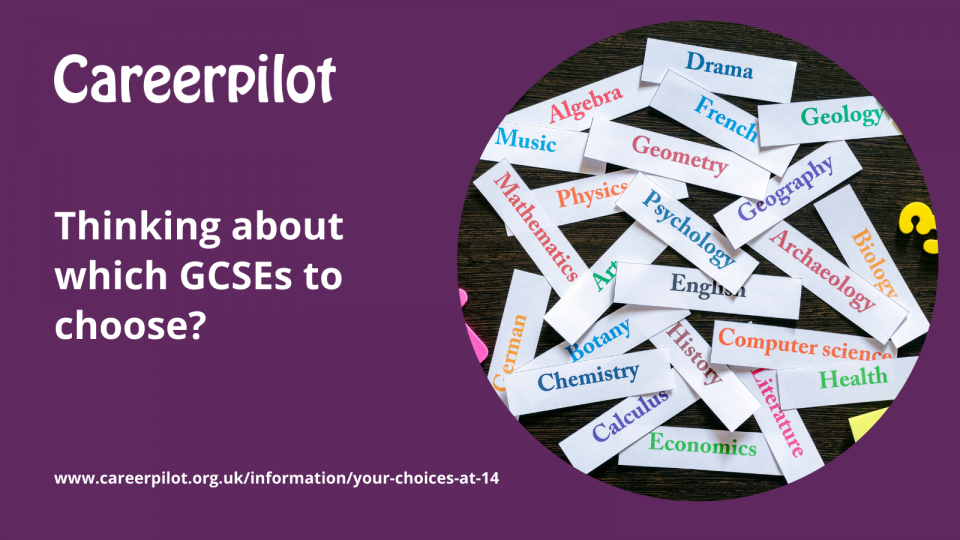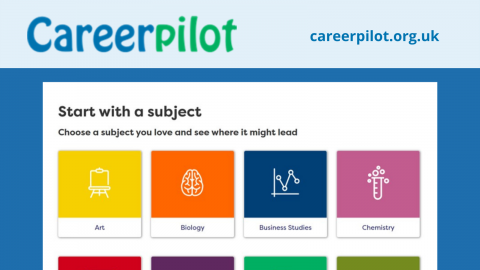Choosing your GCSEs
What are GCSEs?
These are the general qualifications you will do usually in Y10 and Y11 but some schools start in Y9.
You will choose your GCSE subjects in Year 9 (Y8 in some schools) and then study these subjects until Year 11.
You are likely to study between 7 and 9 GCSE subjects depending on your school. GCSEs are assessed by exams taken at the end of the two year course.
GCSEs include subjects:
- you have to do - such as English, Maths and Science.
- you can choose to continue with or not - such as Art, History or PE
- which are new to you - such as health and social care, business and media.
Most GCSEs will be good general preparation for further learning and work so it’s not crucial to choose specific subjects to fit with a specific career at this stage.
There are a few things to bear in mind when choosing:
- If you are looking for a future career or course in science then choose double or triple Science.
- If you want to have a career in art or design in the future, then choose an arts focused GCSE.
- If you want to deal with customers from other countries or work abroad then a language will be very useful.
Here are some other useful tips on how to and how not to choose your GCSEs.

Tips for how to choose and how not to choose your GCSEs!
How not to choose
Choosing a subject because:
- You’ve heard it's easy
- Your parents want you to do it
- You like the teacher [you may not be in their class]
- Your friend says they’re doing it! [you might not be in the same class]
How to choose
- Find out what subjects your school is offering. These will usually be advertised on the school website or the school will give you an options booklet.
- Attend a year 8/9 options event at school [bring your parents too]. Make sure you ask questions about what’s involved in the subjects and what you’ll be learning about. It might be very different to what you have studied so far. Does it sound interesting? Do you think you will enjoy it?
- Ask your parents and teachers for advice, and if you have any friends or brothers and sisters who have done the course already - ask them about it.
- Find out how the course is assessed? Are you someone who does better in coursework than in exams? If so, some of the vocational [work related] courses might be worth considering.
- Trying to choose between two subjects? Think about how each option fits with your other GCSEs. Does a subject go well with your other choices? Or does a subject provide a welcome change? If you’re taking lots of science and maths based subjects, it can be good to include one choice which is essay based.
Think about your plans for the future

No idea what you want to do after your GCSEs? Don’t worry, choose a mix of GCSE subjects to give yourself as many different options as possible.
If you like one of your GCSE subjects and are looking for ideas of what careers or courses it could lead onto – go to start with a subject.
Do the Skills Profile and find out what skills you have.
Got an idea of a job or job sector you think might suit you then check out the job profiles in the job sectors.
Know what you want to do in the future?
Some careers such as architecture, vet, working with languages etc. may require specific degree courses. The job profiles in the job sectors have details of all the entry requirements for these jobs.
In this case work backwards - to get into these degree courses you may need specific A levels/Level 3 qualifications, and to do these you may need certain GCSE subjects and grades.
Check out what GCSE/A level subjects and grades you need for particular degree courses on informed choices and UCAS.